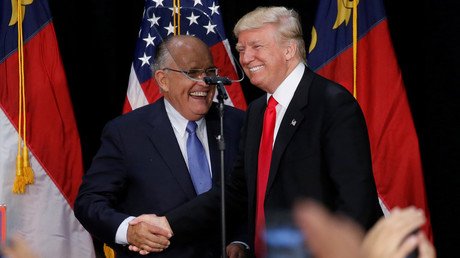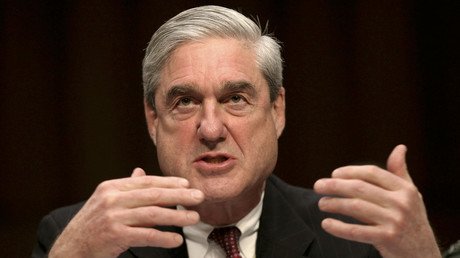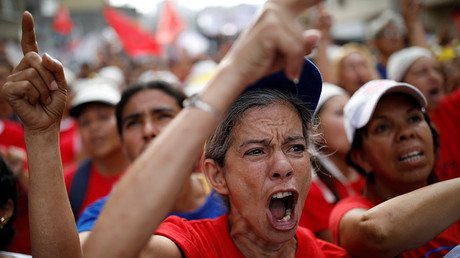Who framed President Putin? CIA veteran hints at culprit, slams Senate-backed ‘collusion’ tale
A Senate committee thinks it’s a viable scenario that Vladimir Putin ordered the manipulation of US elections to install Donald Trump as president. A CIA veteran of 55 years believes it’s more likely the spy agency framed Russia.
Ray McGovern made his comments as the Senate Intelligence Committee endorsed a report on the Trump-Russia collusion narrative surrounding the 2016 presidential election, backing the allegations that “the Russian effort was extensive, sophisticated, and ordered by [Russian] President [Vladimir] Putin himself for the purpose of helping Donald Trump and hurting Hillary Clinton.”
“We see no reason to dispute the conclusions. There is no doubt that Russia undertook an unprecedented effort to interfere with our 2016 elections,” the committee said Wednesday.
Based on his 55-year experience of analysis of Russian politics, McGovern ridiculed the notion that Putin somehow helped place Trump in office. McGovern blamed the US media and politicians for continuing to focus on the issue just to score points and boost results in the upcoming mid-term elections.
“The whole premise of these investigations and the charge that president Putin interfered in the election was based on the thought that President Putin wanted Donald Trump to win,” former CIA analyst told RT. “It does not make any sense at all. Predictability is what any Soviet leader or Russian leader looked toward, after all, [but now] we're hair trigger away from destroying the world.”
The “hack” of the Democratic National Committee, for which Russia is often accused, never happened, McGovern believes.
However, he thinks that the CIA had both the capability and reason to frame the Russians through Marble, the agency’s specific algorithm that scrambles and unscrambles data. This capability, McGovern says, allowed the CIA to “hack into other email systems or other computer systems, disguised who hacked in, and leave telltale signs like little Cyrillic or the name Felix Edmundovich Dzerzhinsky [head of Soviet state security organization].”
“When you look at the particulars no-one hacked into the Democratic National Committee on the July 5th for which we have metadata. That was not a hack. It was a download on a little thumb drive,” McGovern said.
“It seems to me, and more importantly to my colleagues of more technical bent – two former technical directors of the National Security Agency, that if you look for somebody in interfering in the US election, it’s not Russian, it is the people who wanted Hillary [Clinton] to win.”
McGovern believes that the Russian collusion hysteria has created a “very, very dangerous situation because by blackening Russia we’re foreclosing the opportunity for the one sensible idea that President Trump had and that is, ‘Why not have a decent relationship with Russia?’”
The one side that definitely benefits from the situation is the military industrial complex: “There’re people who make a lot of money out of tension between the US and Russia: the arms makers, the arms dealers, there’s too much at stake, they thrive on friction, and that’s one big reason Russian is continually battled against and demeaned by the public media.”
With the number of various committees and subcommittees endorsing the “findings” on the Russian interference, it certainly doesn’t help that none of them offer any evidence or detailed explanation of the alleged Kremlin plot, legal and media analyst Lionel told RT.
“Of the multiple [committees] who found collusion, whoever found there to be something, could not explain what it was. So you have – to give you an idea of ludicrous nature of this – a number of organizations and tribunals that found no evidence of wrongdoing, some that found attempts, desires, and the ones that said “Yes, we found something” – could not tell you what it was what they found,” he pointed out.
Like this story? Share it with a friend!
















